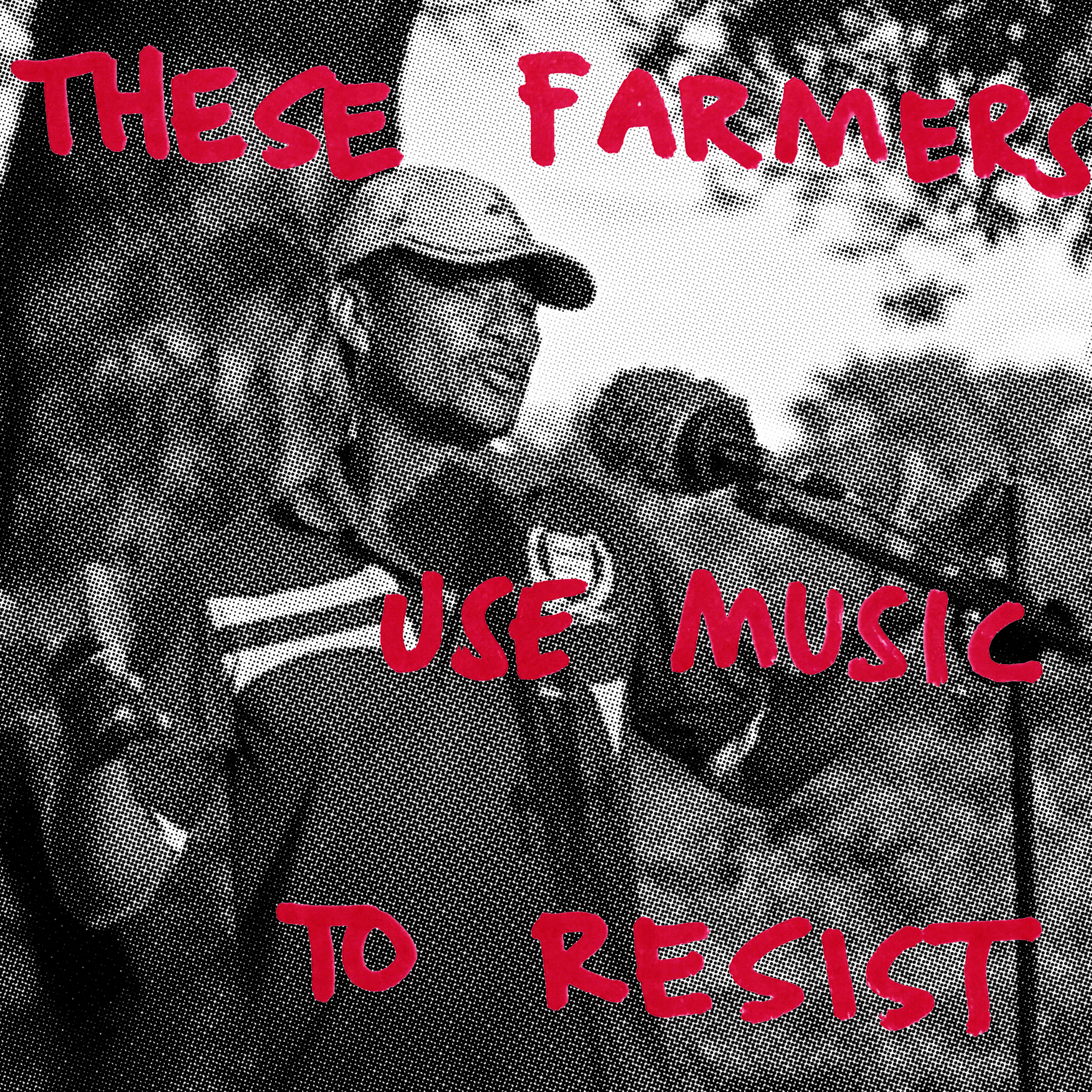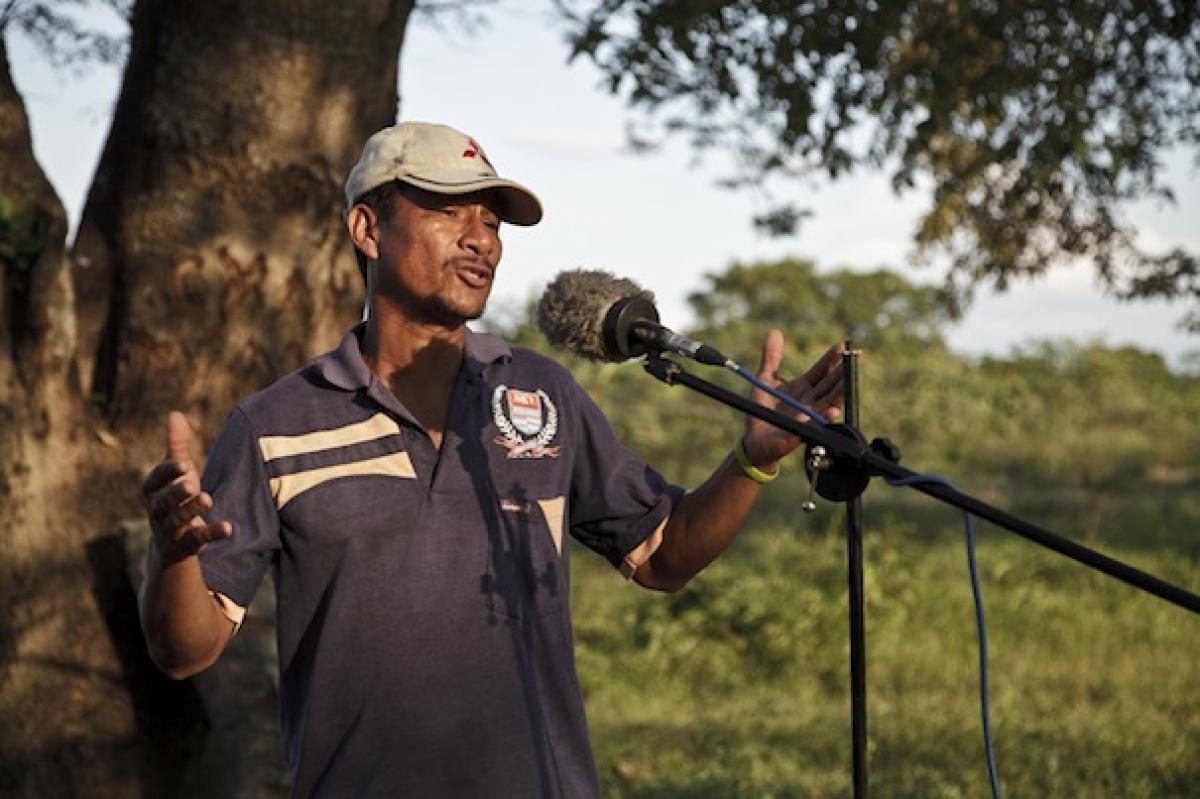
Singing History in Colombia
«Un campesino sin tierra es como un pez sin agua»: A farmer without land is like a fish without water. Les Voy a Contar la Historia is a sonorous and audiovisual compilation of the historical memory of the farmer community of Las Pavas, Colombia – sung and told by its main characters.
Displacement and dispossession have not only violated the right to life of millions of people in Colombia, but also other fundamental rights such as the right to nutrition, work, cultural expression, freedom of movement, health and education. The farmer families of Las Pavas, a community located in the South of the Bolivar Department have been displaced three times during the last decade. On the land they used to cultivate, a huge agroindustrial project of palm oil is being developed. On the 4th of April 2011, the familes returned for the third time to Las Pavas. Since then, under constant pressure and threats, they have been planting their food crops again. Standing in peacefully for their rights, they are waiting for the goverment to return them the titles of their land, expropiating them from the company holding them today. In their pacific struggle for the land, men and women from Las Pavas use music as a peaceful means of resistance, sharing their experiences through songs. Thus, they keep their cultural tradition alive and immortalise their stories in a way no other person could ever write or tell them.
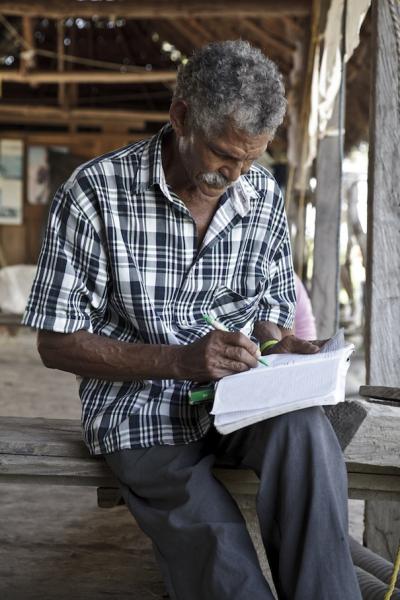
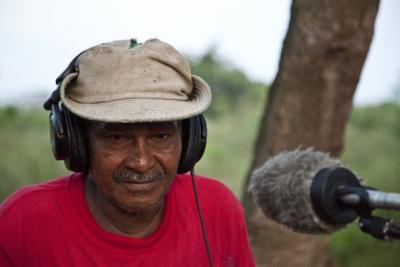
The songs are about the history of the community of Las Pavas. Singing, the farmers compare life before and after the arrival of the oil palm company in the region. The singers complain about the violent displacements they have gone through and the damage caused by the oil palm. Moreover, they sing about their experiences with pacific resistance and about what it means to be a farmer.
Historia de mi vida
by Orlando Ospino. This song talks about how important it is for a farmer to have a piece of land to cultivate his own food – and about how his own life has changed after having been displaced from Las Pavas.
Campesino de verdad
by Edwin Torres «El monchi Pavero». This is a song about the singer's pride of being a farmer of Buenos Aires, the village where he has been living ever since his birth.
Una voz en la montaña
by Edwin Torres «El monchi Pavero». In this song, Monchi sings about himself as a singer who sings for his own people – and about their right to defend their own land and dignity.
Si se escucha una voz dentro’e la montaña
es el Monchi Pavero que va cantando (bis)
Le canta con amor a las mujeres
y al proceso de Las Pavas (bis)
Yo soy un campesino desplazado
aunque pa’ mucha gente no valgo nada (bis)
Yo soy un campesino desplazado
aunque para el gobierno no valgo nada (bis)
porque no soy un empresario
que explota oro y siembra palma (bis)
Yo tengo mucha gente que me critica
Que por qué mis derechos yo los reclamo (bis)
Y esto es lo digno de un ser humano
por eso mis derechos yo los reclamo
por eso mis derechos yo los reclamo
y esto es lo digno de un colombiano
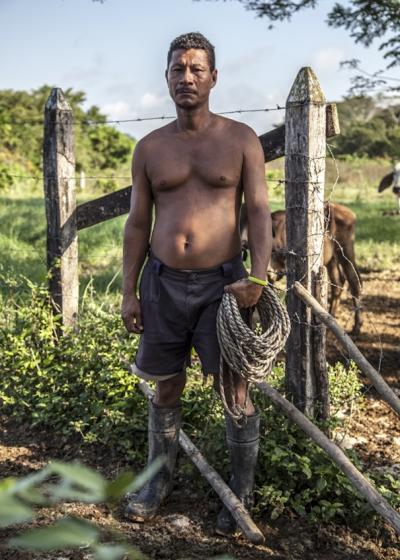
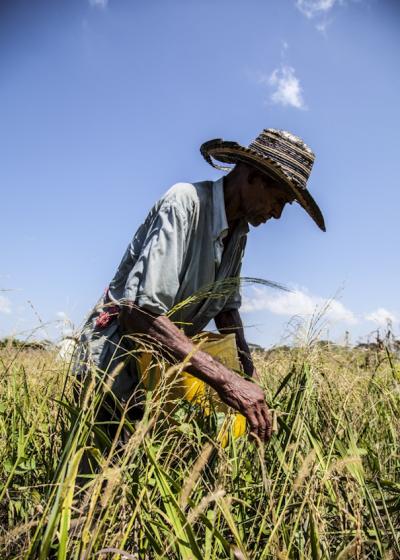
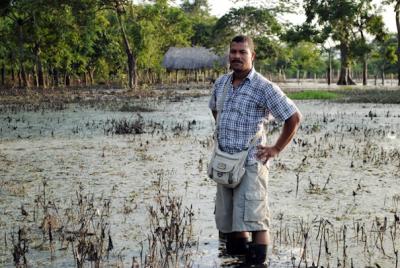
Biography
Published on February 26, 2013
Last updated on April 10, 2024
Topics
From instruments made of plastic waste of the ocean to questions about a futurist naturalism which embraces technology for aesthetic emancipation.
About Tunisian rappers risking their life to criticize politics and musicians affirming 21st century misery in order to push it into its dissolution.
From westernized hip hop in Bhutan to the instrumentalization of «lusofonia» by Portuguese cultural politics.
How does this ideology, but also its sheer physical expressions such as labor affect cultural production? From hip hop’s «bling» culture to critical evaluations of cultural funding.
Snap
